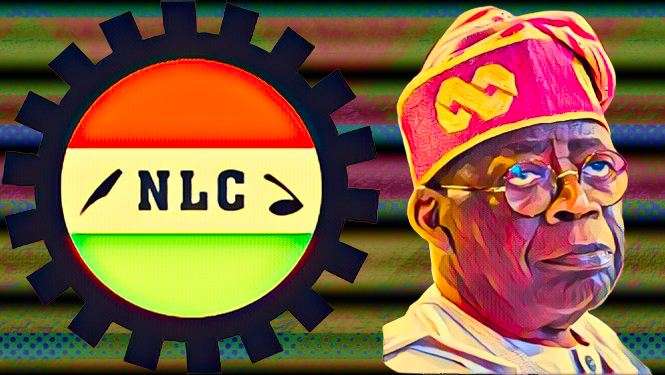Labor unions in Nigeria have called on President Bola Tinubu to engage them in discussions before submitting any new minimum wage proposal to the National Assembly (NASS). The unions emphasize the need for a collaborative approach to ensure that the new wage reflects the economic realities faced by Nigerian workers.
The demand for consultation was made clear during a recent statement by the Nigeria Labour Congress (NLC) and the Trade Union Congress (TUC). These labor bodies argue that any decision regarding the minimum wage should be the result of thorough negotiations between the government, employers, and employee representatives.
NLC President Joe Ajaero stressed the importance of inclusive dialogue. “We urge President Tinubu to involve labor unions in the decision-making process concerning the new minimum wage. This is essential to ensure that the proposed figure is fair and reflective of the current economic conditions,” Ajaero stated.
This call comes amid ongoing economic challenges in Nigeria, including rising inflation, high unemployment rates, and increasing cost of living. Workers have been particularly hard-hit by these issues, and labor unions argue that their input is crucial to setting a minimum wage that can genuinely support Nigerian families.
The current minimum wage in Nigeria, set at N30,000 per month, was implemented in 2019 after extensive negotiations. However, many workers and labor leaders believe that this amount is no longer sufficient to meet basic needs due to the depreciating value of the naira and the country’s persistent inflation.
TUC President Quadri Olaleye echoed similar sentiments, highlighting that any new wage proposal must consider the deteriorating economic conditions. “The cost of living has skyrocketed since the last adjustment. It is imperative that the new minimum wage reflects these changes to protect workers’ purchasing power,” Olaleye remarked.
In response, the government has indicated its willingness to engage with labor unions. Minister of Labor and Employment, Chris Ngige, assured that the administration is committed to a fair and transparent process. “We understand the importance of the minimum wage issue and are open to discussions with labor representatives to reach a mutually beneficial agreement,” Ngige stated.
The issue of minimum wage is a critical one in Nigeria, as it affects a significant portion of the workforce. A well-negotiated minimum wage can help reduce poverty and inequality, ensuring that workers receive compensation that aligns with their cost of living.
Economic experts have weighed in on the matter, suggesting that a balanced approach is needed. They recommend that the government conducts comprehensive economic analyses and engages with all stakeholders to arrive at a sustainable and fair minimum wage. This would involve considering factors such as inflation rates, living costs, and the overall economic environment.
Furthermore, the process of setting a new minimum wage is not just about the amount but also about the broader implications for the economy. Employers, particularly small and medium-sized enterprises, need to be considered to ensure that they can afford the new wage without resorting to layoffs or other negative measures.
In conclusion, the labor unions’ call for consultation before submitting a new minimum wage proposal to the National Assembly highlights the importance of collaborative decision-making. By involving all stakeholders in the process, the government can ensure that the new minimum wage is fair, sustainable, and reflective of the economic realities faced by Nigerian workers.
Source of this article: tribuneonlineng.com


